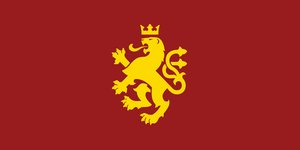Economy
Growth of the economy is the main goal of the Allied States in all endeavors, domestic and foreign. With the Allied States, all trade is free trade. Without a strong economy, the Allied States would not be where it is today. As a capitalist, free market, business owners can run their businesses as they see fit. Due to strong competition and desire to make money, very few business survive using discriminatory practices or creating a hostile workplace. Many business people know it is the person's skills that matter, not nationality, race, or gender. However there are still some small businesses that are extremely discriminatory and still turn profit, however their growth is very limited as many customers find such businesses repugnant and do not want to support them.
It is said anything can be bought or sold in the Allied States. The only known thing not for sale in Bustian markets are people. Slavery is viewed as an abhorrent practice and is outlawed under the penalty of death. Many items and services that are illegal in other nations, such as weapons, recreational drugs, gambling, and prostitution, are sold in the open. The Allied States attracts a large amount of foreign investment as a result of its location, skilled workforce, low tax rates, advanced infrastructure and zero-tolerance against corruption.
The economy is based on the gold standard. Alan Greenspan, one of the most famous Bustian economists in its history, wrote an essay titled
Gold and Economic Freedom which has been the basis for following and keeping the gold standard.
Industries
Leading industrial power in the world, highly diversified and technologically advanced; petroleum, natural gas, steel, motor vehicles, aerospace, arms, telecommunications, chemicals, electronics, food processing, consumer goods, pharmaceuticals, lumber, mining
Imports
Agricultural products, industrial supplies (uranium), natural resources (gold), capital goods (computers, telecommunications equipment, motor vehicle parts, office machines, electric power machinery), and consumer goods (automobiles, clothing, medicines, furniture, toys).
Exports
Natural Resources:
Petroleum, natural gas, coal, copper, lead, molybdenum, phosphates, uranium, bauxite, gold, iron, mercury, nickel, potash, silver, tungsten, zinc, timber
Agricultural Products:
Wheat, corn, other grains, fruits, vegetables, cotton, beef, pork, poultry, dairy products, fish, forest products, exotic animals
Finished Goods:
Agricultural products (soybeans, fruit, corn), industrial supplies (organic chemicals, crude oil), capital goods (transistors, aircraft, aerospace, and motor vehicle parts and equipment, computers, telecommunications equipment, military hardware, nuclear equipment, steel, superalloys), consumer goods (automobiles, medical and recreational pharmaceuticals)





